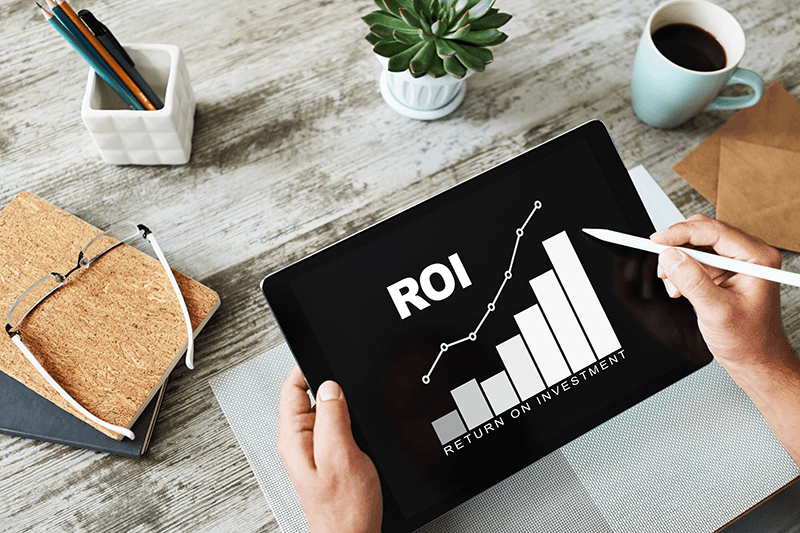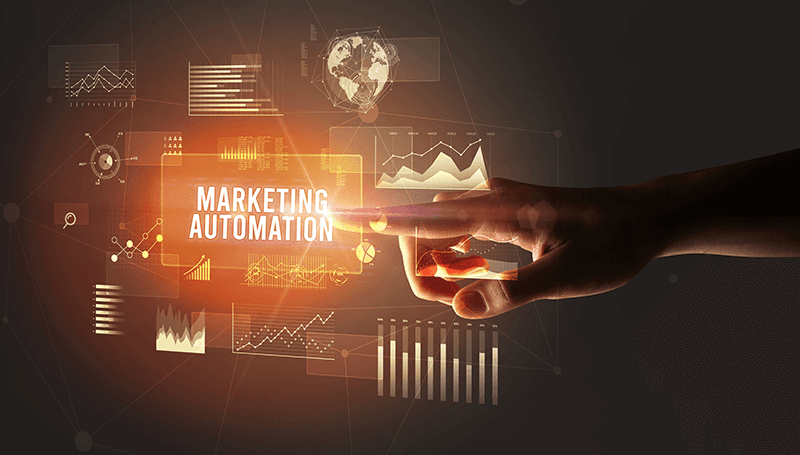Why Marketing Automation Matters for Small Businesses
In a world where time is money, marketing automation is a must for small businesses looking to scale quickly without compromising quality. By automating repetitive tasks like email campaigns, social media posts, and customer segmentation, you can save time, reduce human error, and improve overall efficiency. But that’s not all — automation also allows you to gather invaluable data, track customer behavior, and provide a more personalized experience to your audience.
For small businesses, these benefits directly translate into increased engagement, higher conversion rates, and better customer retention, which all contribute to a boosted ROI.
Key Strategies to Boost ROI with Marketing Automation
Email Marketing Automation
Email marketing remains one of the most effective ways to nurture leads and build long-term customer relationships. With automation tools, you can send personalized emails at the right time, based on user behavior or predefined triggers.
Welcome Series: Automatically send a series of emails when someone subscribes to your newsletter or makes their first purchase.
Cart Abandonment: If a customer leaves items in their cart, a well-timed email reminder can bring them back to complete their purchase.
Personalized Offers: Based on past purchases or browsing history, you can send tailored recommendations that are more likely to convert.
Social Media Automation
Managing multiple social media accounts can be a daunting task. But with automation, you can schedule posts, track engagement, and analyze performance all in one place, saving you hours each week.
Post Scheduling: Plan your social media content in advance and have it posted automatically at peak times.
Audience Engagement: Use automation tools to respond to common inquiries quickly or set up a chatbot to handle frequent questions.
Retargeting Campaigns
Not everyone who visits your site will make a purchase. Retargeting allows you to reach these visitors again, increasing the chances of conversion. Automated retargeting campaigns can follow your leads across different channels like social media, Google Ads, and email, keeping your brand top-of-mind and bringing them back to your site.
How Data-Driven Insights Can Maximize ROI
With marketing automation, you're not just automating tasks — you're gathering data. The real power lies in using that data to optimize your strategies and boost your ROI.
Behavioral Tracking: Monitor how users interact with your emails, website, and ads. This information helps refine your campaigns for better engagement.
A/B Testing: Test different elements of your marketing campaigns, from email subject lines to landing page designs, to see what resonates best with your audience.
Segmentation: Automate the process of segmenting your audience based on demographics, behaviors, or past interactions. This allows you to deliver more relevant content and offers to each group, increasing the likelihood of conversion.
Tracking ROI: What Metrics to Measure
To truly measure the effectiveness of your marketing automation efforts, it’s essential to track the right metrics. Here are the key ones to monitor:
Customer Acquisition Cost (CAC): How much it costs to acquire a new customer through automated marketing channels.
Customer Lifetime Value (CLV): The total revenue a customer generates over the duration of their relationship with your brand.
Lead Conversion Rate: The percentage of leads that convert into paying customers after interacting with your automated campaigns.
Return on Investment (ROI): Compare the revenue generated through automated campaigns with the costs to implement and maintain those campaigns.
By closely monitoring these metrics, you can optimize your automation strategy to get the best return on your marketing spend.
Advanced Automation Strategies to Supercharge ROI
Once you’ve mastered the basics of marketing automation, it’s time to dive deeper and leverage more advanced strategies to really see the benefits.
Advanced Lead Scoring and Segmentation
Automated lead scoring is a fantastic way to prioritize high-quality leads. By tracking user behavior, you can assign scores to leads based on their level of engagement and likelihood of conversion. This allows your sales team to focus their efforts where they are most likely to see results.
AI-Powered Predictive Analytics
Artificial Intelligence (AI) can be a game-changer in marketing automation. Predictive analytics tools use machine learning to forecast future customer behavior, helping you to optimize your marketing efforts before customers even take action. By anticipating their needs, you can tailor your marketing messages and offers to maximize conversion rates.
Conclusion: Achieving Maximum ROI with Marketing Automation
In conclusion, marketing automation is not just about improving efficiency; it’s about leveraging data and technology to create a more personalized, engaging, and effective marketing strategy. For small businesses, it’s a powerful tool to boost ROI by automating processes, refining customer segmentation, and delivering targeted content. By measuring the right metrics, testing different approaches, and continuously optimizing your campaigns, you’ll see a significant return on your investment.
Remember, marketing automation isn’t a one-time setup — it’s an ongoing process of refinement. So start small, scale strategically, and watch your ROI grow as you optimize your marketing automation efforts!
Ready to revolutionize your marketing automation? Learn more about how Flowifier can help you stay ahead of the competition. Explore our platform today and take the first step toward a more efficient, customer-centric marketing strategy.





